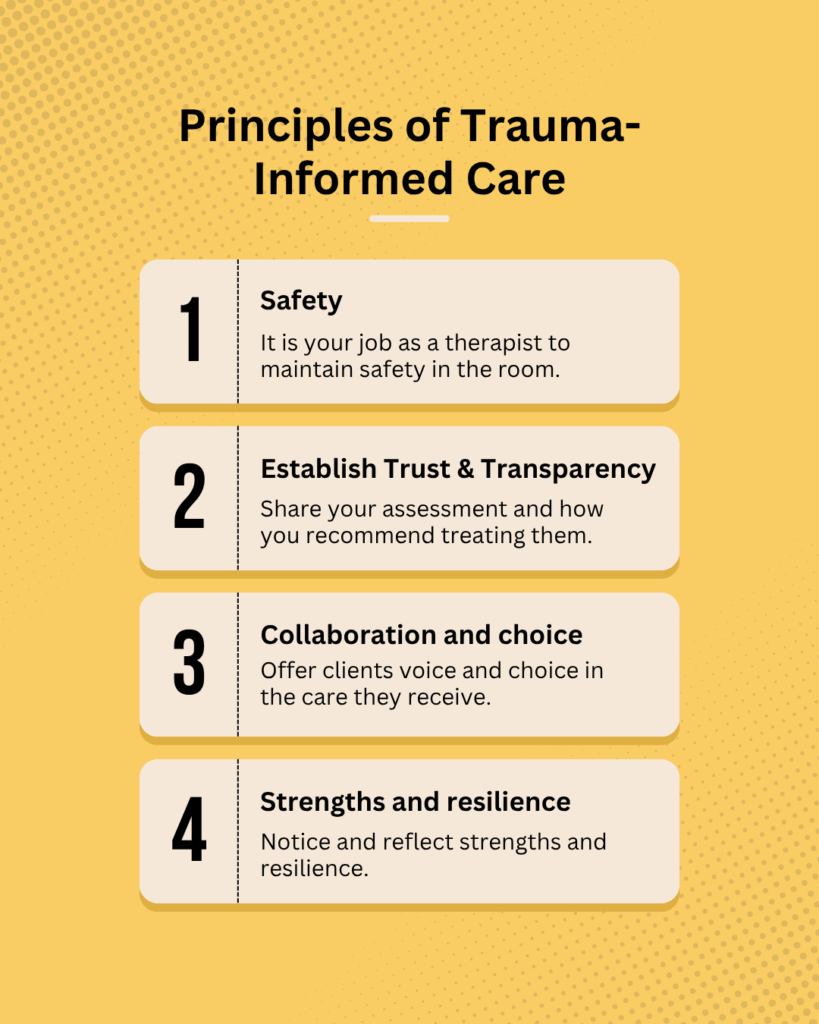How to Practice Trauma Informed Care Effectively Within Your Scope
I wrote a blog post for the Stress Less Therapist on a topic I’m passionate about. Many of the therapists I have supervised over the years have raised questions about how to practice with a trauma informed care lens and deepen their work with traumatized clients. More importantly, they do not always have the knowledge or tools to support a client who flooding and re-experiencing their trauma as they share their experience.
My advice is: 1. Understand the principles of trauma-informed care, 2. Be knowledgeable about the basic physiology of our stress response system, and 3. Practice within your scope.

Principles of trauma informed care:
1. Safety
2. Establish Trust & Transparency
3. Collaboration & Choice
4. Strengths and Resilience
While many therapy interventions lend themselves to deepening your work with clients, they do not resolve trauma. The key difference between being trauma-informed or a trauma therapist is your training. To truly be a trauma therapist, you will need advanced training in Internal Family Systems (IFS), Eye Movement Desensitization and Reprocessing (EMDR), Acceptance and Commitment Therapy (ACT), or another trauma-specific modality.
In lieu of advanced training in those modalities, boosting your knowledge on somatic therapy and polyvagal theory and practices can support the work you are already doing to help clients manage their mental health symptoms. Here are some books and workbooks I recommend to support your learning and practice (note: includes affiliate links that may send me a small commission at no additional cost to you. Thank you for supporting my work).
Read the full post here.
